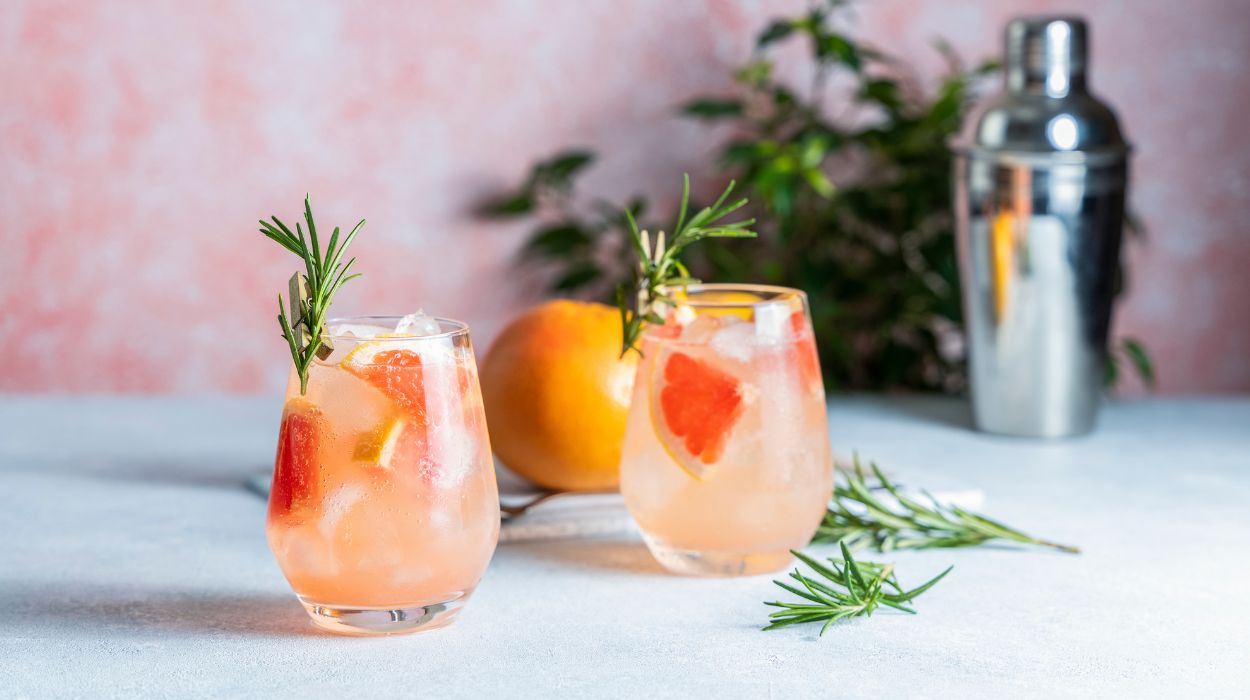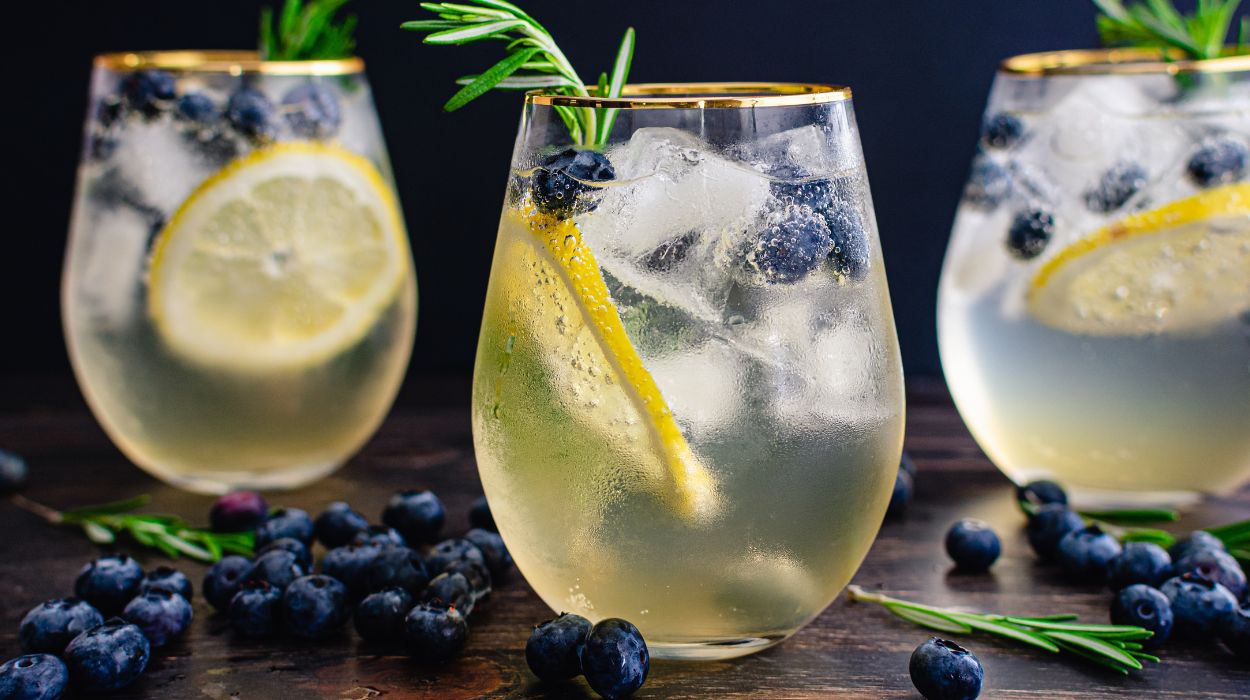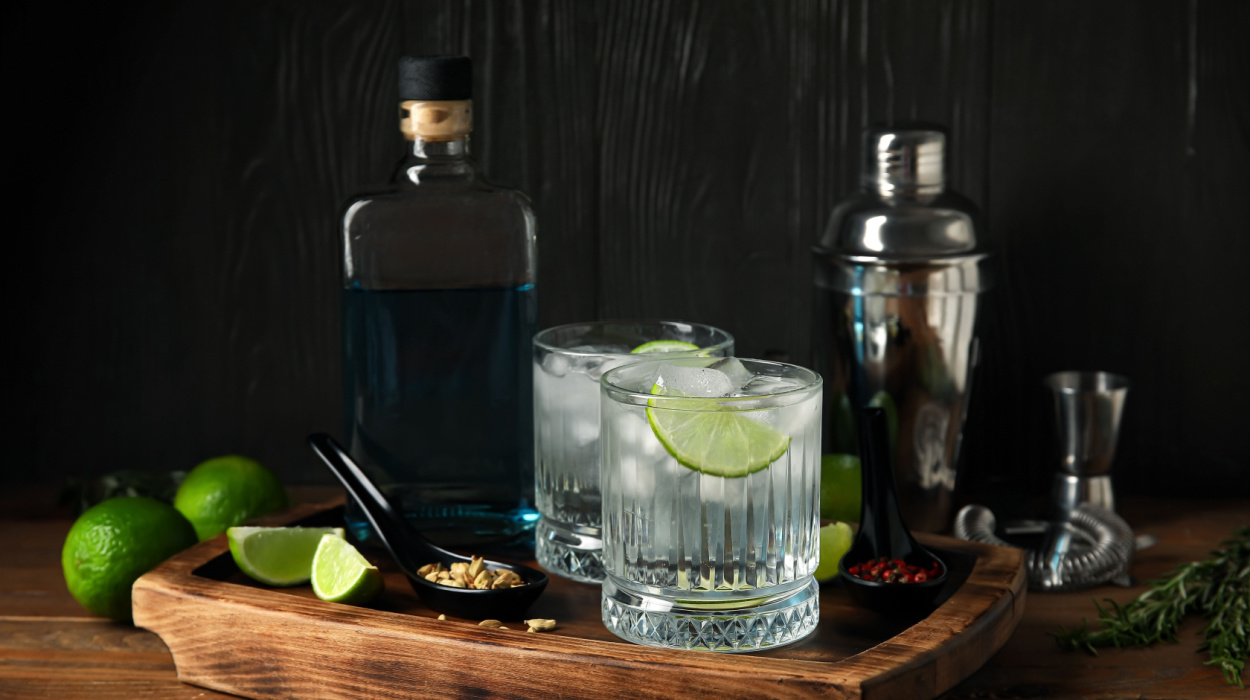In general, abstaining from alcohol is vital to avoid gaining weight. Research shows that drinking[1] too much increases your chances of becoming obese by 70%. Some alcohols, on the other hand, can help you lose weight, but there are some precautions you should take.
First, ensure that they are minimal in calories. Furthermore, some substances can be taken in conjunction with alcohol in order to promote weight loss. For example, as you’ll learn later, you can drink alcohol while taking ozempic to help with weight goals.
Although a low-calorie alcoholic drink can help with weight management, they shouldn’t be used exclusively for weight loss. Dieting and exercise will always help you lose weight faster than drinking alcohol. Here are our top five recommendations for the best alcohol for weight loss.
Best Alcohol To Drink For Weight Loss
If you want to lose weight but are afraid of giving up your beer, glass of wine, or hard liquor shot, there are some alternatives. Dietitians recommend the following low-calorie alcoholic beverages:
- Red wine contains 105 calories.
- Paloma contains 97 calories.
- Light beer contains 96 calories.
- Vodka seltzer contains 97 calories.
- Rum and diet lemonade contains 97 calories.
Best Alcohol For Weight Loss
Here are some of the healthiest low-calorie alcoholic drinks in 2024.
Red Wine
Although most people focus on red wine’s heart health benefits, it is also beneficial for weight management. Red wine created from red grapes contains resveratrol, a natural plant polyphenol.
Researchers discovered that resveratrol[2] stimulates animal weight loss, while outcomes in people have been inconsistent. That logic leads to the conclusion that it could potentially cause human weight loss.
When ingested in moderation, it reduces the chance of overeating by influencing satiety. This is due to the presence of polyphenols and ethanol.
On the downside, excessive wine consumption may increase appetite. As a result, you will overeat and fail to accomplish your weight-loss goal.
Paloma

The Paloma is a cocktail prepared with tequila, soda water, lime juice, and grapefruit juice.
Grapefruit juice contains less sugar than other fruit juices, which lowers your risk of gaining weight. You can have a Paloma with no added sugar or with minimum sugar quantities. Of course, the former is preferable to the latter in terms of weight management.
The soda water in the drink provides volume without adding calories. You’ll be hydrated because it’s mostly water. Staying hydrated[3] will give you a sense of fullness, which will lower your chances of experiencing hunger pangs
Light Beer
Light beer is ideal for weight loss because it contains less alcohol than regular beer. Light beers[4] have an average alcohol content of 4.2%. You won’t consume many calories because of the low alcohol volume. Remember that different light beer brands have varying alcohol percentages, so always read the label.
We drink water to stay hydrated. Light beer is a great hydration alternative when you don’t have access to water. Being hydrated will help you lose weight by increasing your metabolism and controlling your appetite.
Vodka Seltzer

Vodka seltzer is created by combining vodka with carbonated water. The drink can sometimes be made by combining soda, juice, or syrups. Of course, consuming these sugary substances will result in weight gain. If you can’t stand the taste of vodka and water, you can add lemon, lime, or berries to your drink.
Another benefit of this drink for weight loss is its ease of portion control. In comparison to other alcoholic beverages, vodka seltzer has only two major ingredients: vodka and carbonated water. Because it contains no additional mixers or juices, it is simple to calculate the number of calories you are consuming.
Rum And Diet Lemonade
Rum and diet lemonade is the best alcohol drink for weight loss for people on a ketogenic diet. That’s because it has no carbs. Remember that rum is made by fermenting sugarcane or molasses. Carbohydrates from the original source are converted to alcohol during the distillation process.
The lemonade, on the other hand, is sweetened with artificial sweeteners rather than sugar. Aspartame and sucralose are two common artificial sweeteners. Although these sweeteners sweeten your drink, they don’t raise your blood sugar levels.
How Does Alcohol Affect Weight Loss?
If you want to learn how to lose weight properly, you must first understand how alcohol affects your body. Alcohol has both direct and indirect weight loss effects. The effects vary depending on how it is consumed.
Effects When Combining Alcohol With Ozempic
Ozempic is a medication used to treat type 2 diabetes and control weight. People react differently when they combine ozempic and alcohol.
Some people report nausea, diarrhea, and vomiting. Others may suffer kidney damage in severe cases. Although some people may not experience these effects, they may have to deal with the odd taste of alcohol after mixing the drug.
Consult your doctor before combining the two substances. You could also drink alcohol when you aren’t taking the drug.
Effects When Combining Alcohol With Supplements
Can combining a supplement with alcohol help you lose weight faster? No, because alcohol can interfere with nutrient absorption in the body. As a result, the supplement will be useless because you won’t receive any nutrients from it.
If you must take them together, consider the timing and dosage to maximize absorption and avoid alcohol interference.
Alcohol can increase your appetite, causing you to overeat.[5] It achieves this by stimulating the hypothalamus, making you think that you are hungry even when you have had enough food prior to drinking. As a result, you will eat far too much for the supplement to be able to help you lose weight.
Effects When Combining Alcohol With Water
Water can help to offset the negative effects of alcohol. Some people dislike water and prefer to compensate by drinking club soda. However, soda will undermine your weight-loss efforts. Instead of alcohol, try detox water, which is water infused with fruits or herbs.
Because alcohol is a diuretic, the more you drink the more urine you will pass. This causes dehydration. Water, fortunately, replaces the water you lose through urination.
Also, because it contains no calories or sugars, water is an excellent mixer. Still, alcohol is high in calories and can cause weight gain. This, however, isn’t as bad as combining alcohol with a sugary mixer.
Effects When Combining Alcohol With Smoothies
Smoothies are yet another alternative drink that can be used to offset the negative effects of alcohol. Smoothies are generally healthy because they are high in minerals, fiber, and vitamins. They hydrate due to their high water content.
When consumed in excess, however, alcohol’s dehydrating effect can draw water from smoothies and out of your system.
Effects Of Alcohol During Intermittent Fasting
Intermittent fasting,[6] or IF, is one of the most effective methods for achieving a calorie deficit. That’s because there will be days when you won’t eat anything. How much calorie deficit you create is determined by your IF strategy.
Is low-calorie alcohol a good drink for IF? The goal of IF is to improve the metabolic function of your body. Drinking alcohol while fasting impairs the liver’s ability to perform its functions.
When you are drinking during IF, instead of burning fat in your system, the liver will be forced to digest the alcohol. Moreover, because there is no food in your system, alcohol will cause blood sugar fluctuations and undermine the metabolic benefits of fasting.
Best Time To Drink Alcohol For Weight Loss
Discussing the best alcohol for weight loss isn’t enough. We also need to discuss the best time to take it. Without discussing when to take it, you may inadvertently gain weight by taking it whenever you want.
To begin, the best time for alcohol consumption is before or after a meal. Food in the stomach slows the absorption of alcohol. As a result, you won’t become tipsy after only a few sips of alcohol. Food also mitigates the effects of fluctuating blood sugar levels, making you less likely to overeat.
Drinking alcohol has been linked to chronic sleep disruption.[7] It means you should avoid drinking it late at night. Sleep deprivation can increase appetite. That could explain why some people snack at midnight,[8] which can potentially lead to obesity.
Different people have different exercise routines. Regardless of your schedule, you should exercise within a few hours of drinking alcohol. Exercise helps you manage your weight by counteracting the effects of alcohol by burning calories.
Finally, you should keep an eye on your body’s reaction to alcohol. If you get a strong appetite after drinking a lot, you should cut back. Overeating will undermine your weight loss efforts.
Conclusion
The best alcohol for weight loss is one with the fewest calories. Because they all contain different calorie counts, it can be difficult to choose one brand or type of alcohol for weight loss. As a result, you should choose a low-calorie alcohol based on your preferences.
Remember, you shouldn’t rely solely on low-calorie alcohol to lose weight. Despite having few calories, you can gain weight by overindulging. At the same time, there are more effective methods of losing weight, such as exercise and dieting.
Frequently Asked Questions
While drinking alcohol, it is possible to lose weight. However, you should drink in moderation, with women having one drink per day and men having up to two drinks per day.
There is none better for weight loss because they contain roughly the same low calorie amounts (97 vs 100). However, the calorie content can vary slightly depending on the mixer used.
Because vodka is a distilled spirit, it does not turn to sugar in the body. The raw ingredients are fermented during the distillation process, converting all fermentable sugar to alcohol.
Because different alcohol brands have different calorie levels, there is no specific alcohol that is good for weight loss. However, you could opt for low-calorie options like vodka, light beer, and dry wines.
Avoid drinking alcohol right before going to bed if you are trying to lose weight. Alcohol can disrupt your sleep, which causes you to gain a large appetite, increasing your chances of overeating and gaining weight.
Gin, rum, vodka, whisky, and tequila are the best alcohols for those on a keto diet. These beverages have few to no carbs.
 Evidence Based
Evidence Based
